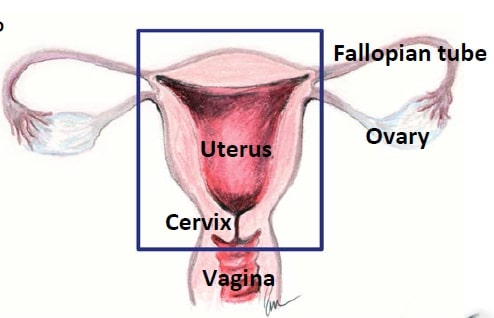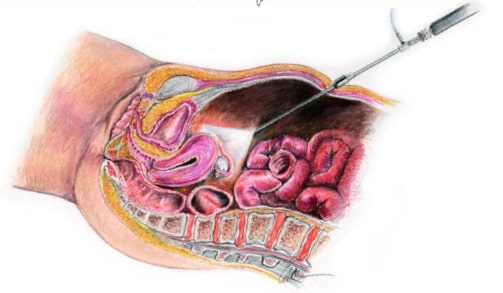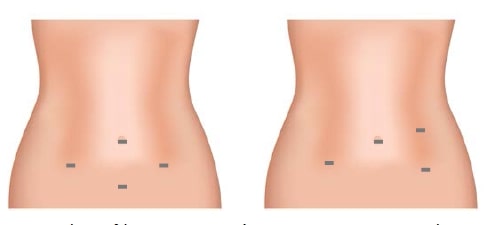Laparoscopic Hysterectomy
Hysterectomy is the second most common surgery performed in the United States. Total laparoscopic hysterectomy is a minimally invasive method of removing the uterus. This means that the surgeon makes only small cuts in the belly to "minimize" or lessen injury to the body. Your surgeon places a camera (laparoscope) through one small cut to see inside of your abdomen and uses little instruments through the other surgical cuts to do your surgery. The uterus then is removed through the vagina or one of the small cuts in your belly. Women who have a laparoscopic (minimally invasive) hysterectomy recover more quickly, have less pain, and have fewer infections than women who have one large surgical cut in the abdomen called an abdominal hysterectomy.
In a total laparoscopic hysterectomy, a surgeon removes your whole uterus (womb) and the opening to the uterus (cervix). Sometimes other reproductive organs are removed, including the fallopian tubes (tubes sending the eggs to the uterus), or ovaries (the egg producers). Your surgeon will decide which organs may need removal depending on your age, family history, and reason for surgery.
Why do surgeons perform this procedure?
This procedure may be useful for:
Benefits of the surgery:


Alternatives to total laparoscopic hysterectomy depend on the reason for having surgery, but can include:
What are the risks of this procedure?
There is a small chance of having a complication or problem when you have surgery. Your risk could be higher if you have had surgery before or have other medical conditions. Some risks of total laparoscopic hysterectomy include:
What should I expect after surgery?
Everyone recovers at a different pace after surgery. Many patients are able to get back to most of their usual activities by two weeks after surgery, but full recovery can take six-to-eight weeks. Common symptoms after total laparoscopic hysterectomy include:
Do not put anything in your vagina for at least six weeks (no tampons or sexual intercourse). You will no longer have periods and will not be able to become pregnant. Most women do not experience any change in sexual function after hysterectomy.
When should I call my doctor?
Serious problems after total laparoscopic hysterectomy are uncommon, but notify your surgeon if you develop:

